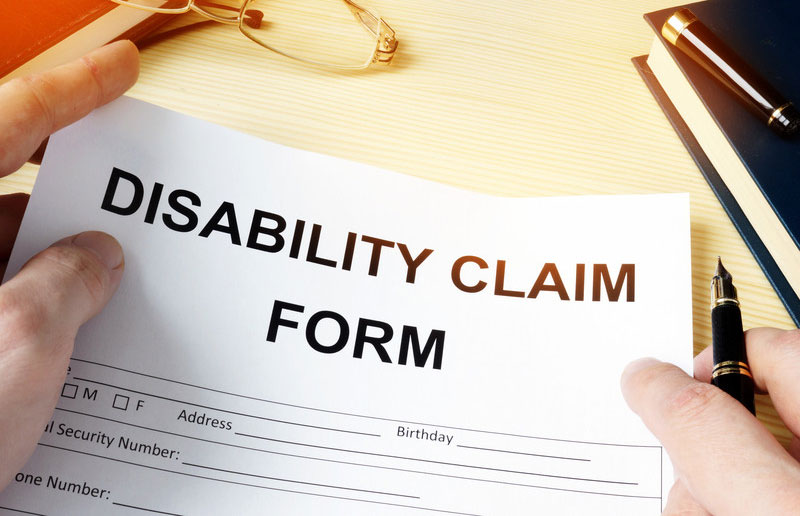Updates to ERISA (Employee Retirement Income Security Act) that came into effect on April 1, 2018, are relevant to disability claimants, disability insurance carriers, insurance lawyers, and companies offering medical peer review services among other entities. This final rule is aimed at strengthening consumer protections for private sector employees who make claims for benefits from their disability insurance plans. It would ensure a “full and fair” claims review and appeals process for disability claims, which is like the process required under the ACA or Affordable Care Act for group health plans. If a health plan fails to comply with any of the new procedures, the claimant will be considered to have exhausted administrative remedies and can immediately file a suit in federal court for benefits. A limited exception is allowed for violations that are de minimis(too trivial or minor), non-prejudicial, due to reasonable cause or matters beyond the plan’s control, and do not reflect a practice or pattern of non-compliance.
What Are the Requirements of This Final Rule?
- All persons involved in the disability determination process must be unbiased, and independent and this includes “vocational experts” as well as medical experts, healthcare providers treating the claimant, claims adjudicators and others. External (not in-house) review of claims is required.
- Unlike the earlier regulations, more information is required, including an explanation of all the reasons for claim denial. The insurer must explain their reasons for disagreeing with
- any disability determination by the SSA (Social Security Administration)
- the views of healthcare providers who treated the claimant
- with the healthcare/vocational professionals who presented to the insurer on behalf of the claimant or from whom the insurer requested advice.
A notice of claim denial must also clarify whether the denial was based on medical necessity or experimental treatment. Alternatively, it may state that such explanation will be provided if requested, at no cost to the claimant.
- If a claim is denied, the claimant must be provided access to the entire claims file before the appeals process, including evidence and expert testimony. The claimant must also have an opportunity to respond to any new information or new foundation for the denial.
- If the claim is denied, the insurer must notify the claimant of any plan/contractual time limit on the period to file a civil lawsuit. The calendar date on which the period ends must also be specified.
- Rescission of disability benefit coverage that apply retroactively will typically be considered as benefit denials, and this will prompt the plan’s appeals process.
- The required notices must be written in a “culturally and linguistically appropriate” manner, i.e. in the same standard that applies under the ACA to group health plan claims and appeals. This means that they must provide English language assistance and must be available in foreign languages.
Medical Peer Review Must Be Thorough and Unbiased
An insurer or health plan examining a disability claim or appeal utilizes medical records services to determine whether the claim has merit. Now, with the ERISA Final Rule, insurance companies must ensure that they consult with a healthcare professional who has adequate training and experience in the field of medicine to provide a medical judgment or evaluation. Whether the insurer chooses to perform a medical peer review, an independent medical examination, or other investigation, the medical evaluation should be thorough and unbiased. This is especially important in the light of the final rule that requires the insurer to engage in a full and fair dialogue with the claimant about his/her claim. Moreover, the insurer must also give the claimant an opportunity to respond to “new evidence.” A peer review or IME may be considered new or additional evidence and if there is any bias in the evaluation, the claimant can challenge the same and may demand to have a new evaluation. The claimant can also request to have his or her own doctor to respond to the new medical opinion and point out the flaws.
Which Health Plans Are Affected?
The new rules affect only ERISA plans – government and church plans exempt from ERISA are not required to comply with them. They apply only to plans under which the plan fiduciary exercises discretion in determining the claimant’s disability, and not to plans that have the disability determination done by a separate plan/entity. Affected plans may include short-term and long-term disability plans as well as the following.
- Life insurance plans that provide for premium waivers for totally disabled members.
- Group health plans that extend eligibility to disabled adult children (over age 26).
- Retirement benefits that vest, or are payable if a plan member is disabled, irrespective of age. This would include qualified retirement plans such as 401(k), 403(b) and defined benefit plans, as well as non-qualified deferred compensation “top-hat” plans.
Steps Employers Can Take to Stay Compliant
Lisa Klinger, in her article published innews.leavitt.com, outlines certain useful action steps employer can take to ensure their plans are compliant.
- Find out which plans may be subject to the new rules.
- For plans that are subject to the new rules, they can do any of the following.
- Revise the plan document to provide that the plan fiduciary doesn’t have the discretion to determine whether a member is disabled. Disability determination can be then deferred to a separate plan or entity.
- Amend the plan document and/or separate claims procedures to include the new procedures, and update claims and appeals denial notices.
- If the plan fiduciary has the discretion to determine disability but relies on the claims procedures of a disability insurer of TPA (Third-party Administrator), confirm with the insurer or TPA that their procedures and notices have been updated. Also, ensure that the plan language on claims procedures states that the insurer’s or TPA’s claims procedures apply. The plan can be amended if necessary.
- If the plan is a consolidated one that provides insured disability benefits and for which the insurer has discretion to determine disability, review the “wrap” plan document and SPD (Summary Plan Description) to make sure they state that the insurer has discretionary authority and the insurer’s disability claims procedures apply. Amend the plan if required.
- Give plan members an SMM (Summary of Material Modifications) or a new SPD clarifying the new claims procedures.
- Co-ordinate with insurers and TPAs and ensure that all claims filed are in accordance with the new disability claims procedures, irrespective of whether or not the plan document or claims procedures have been formally updated.
- If a claimant’s claim or appeal is denied, ensure that the notices and/or documents provided have been updated to include the new timelines and procedures.
The New Updates Could Reduce Claim Denials
The U.S. Department of Labor (DOL) points out that disability insurance benefits claims comprise almost two-thirds of all benefits-related ERISA lawsuits, and based on rough estimates these disability benefits claims are often denied. The new ERISA rules would protect disability insurance claimants from wrongful denials of long-term as well as short-term disability claims. Apart from minimizing conflicts of interest, they would promote an open and robust discussion of the claim while ensuring that plan administrators comply with the procedural protections for disability insurance claimants.




